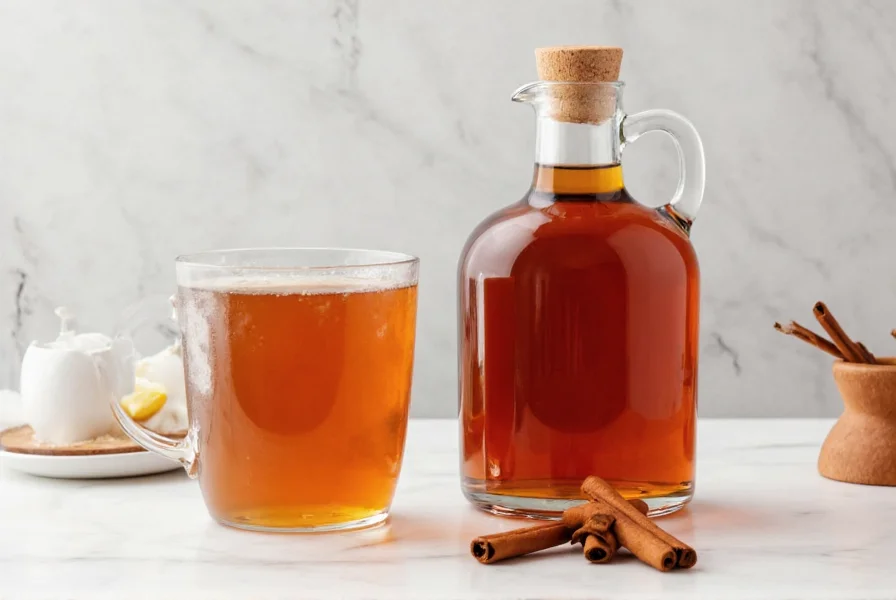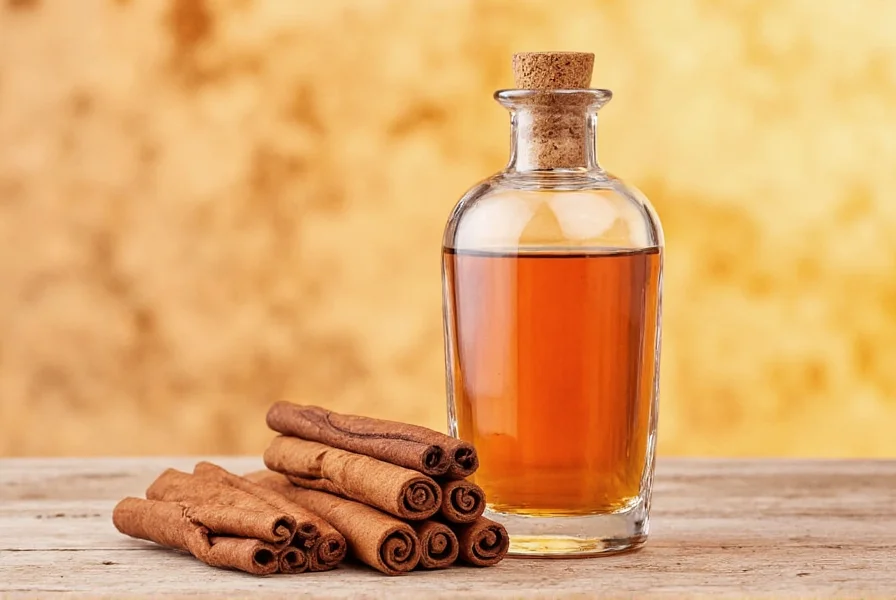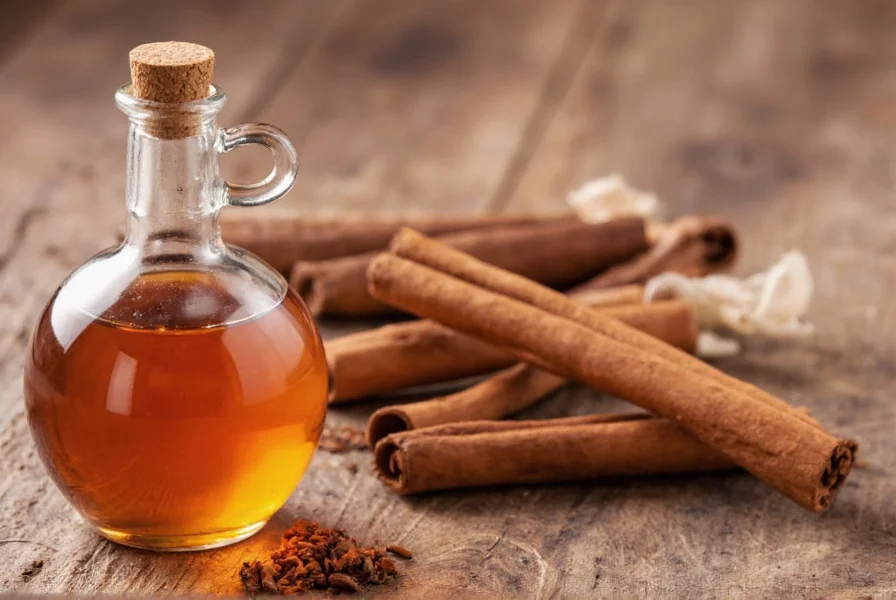
Understanding Cinnamon Liquor: More Than Just a Spiced Spirit
Cinnamon liquor stands as a distinct category within flavored spirits, offering a concentrated cinnamon experience that differs significantly from similar products. While many consumers confuse it with cinnamon schnapps or commercial cinnamon whiskey products, true cinnamon liquor maintains a specific production method and flavor profile that sets it apart.
The production process typically involves either distilling neutral spirits with cinnamon bark or infusing already distilled spirits with cinnamon. High-quality cinnamon liquor uses Ceylon cinnamon (Cinnamomum verum) rather than the more common Cassia cinnamon, resulting in a smoother, less harsh flavor with subtle citrus notes. This distinction is crucial for understanding how to use cinnamon liquor in cocktails effectively without overwhelming other ingredients.
Characteristics and Quality Indicators
When evaluating cinnamon liquor, several factors determine its quality and suitability for various applications:
| Quality Indicator | High-Quality Cinnamon Liquor | Lower-Quality Options |
|---|---|---|
| Base Spirit | Vodka or neutral grain spirit | Low-grade alcohol with impurities |
| Cinnamon Source | Ceylon cinnamon (softer flavor) | Cassia cinnamon (harsher, more intense) |
| Sweetness Level | Balanced, not cloying | Excessively sweet |
| Aftertaste | Clean cinnamon finish | Burning alcohol sensation |
Understanding these differences helps explain why certain brands work better for cinnamon liquor storage tips and cocktail creation. Higher quality products maintain their flavor integrity longer and blend more seamlessly with other ingredients.
Culinary Applications Beyond Cocktails
While many associate cinnamon liquor with seasonal cocktails, its culinary applications extend far beyond drinking. Professional chefs and home cooks alike utilize it as a flavor enhancer in various preparations:
- Baking: Adds depth to apple pies, pumpkin bread, and gingerbread without overwhelming other spices
- Dessert Sauces: A teaspoon enhances caramel, chocolate, and fruit sauces
- Coffee and Hot Chocolate: Creates an instant gourmet beverage with just a splash
- Fruit Preserves: Balances sweetness in jams and compotes
When substituting in recipes that call for cinnamon, remember that cinnamon flavored spirit characteristics mean you'll need less than you would of ground cinnamon. As a general rule, 1 teaspoon of cinnamon liquor equals approximately 1/4 teaspoon of ground cinnamon in terms of flavor impact.
Cinnamon Liquor vs. Similar Products
Understanding the distinctions between related products prevents recipe failures and helps you select the right ingredient:
- Cinnamon Liquor vs Cinnamon Schnapps: Schnapps typically contains additional spices like clove and orange peel, creating a more complex but less pure cinnamon flavor. Schnapps also tends to be sweeter and lower in alcohol content.
- Commercial Cinnamon Whiskeys: Products like Fireball are technically cinnamon-flavored whiskey liqueurs, not true cinnamon liquors. They contain whiskey as a base rather than neutral spirits and have significantly higher sugar content.
- Homemade Cinnamon Infusions: DIY versions often lack the balanced sweetness and precise cinnamon concentration of commercial products, though they offer customization options for homemade cinnamon liquor recipe enthusiasts.
These differences significantly impact how each product performs in recipes. For instance, best cocktails with cinnamon liquor typically use it as a supporting flavor rather than the dominant note, while cinnamon schnapps often takes center stage in simpler mixes.
Practical Usage Guidelines
To maximize your experience with cinnamon liquor, consider these professional recommendations:
Storage Recommendations
Unlike wine or fresh juices, distilled spirits don't spoil, but proper storage preserves flavor quality. Keep your cinnamon liquor in a cool, dark place away from temperature fluctuations. Once opened, consume within 1-2 years for optimal flavor, though it remains safe indefinitely. The airtight seal is crucial—oxidation can gradually diminish the vibrant cinnamon notes that make cinnamon whiskey alternative products so appealing.
Cocktail Pairing Principles
Successful cocktail creation with cinnamon liquor follows these guidelines:
- Balance sweetness with tart elements (lemon, lime, or cranberry)
- Complement with complementary spices (nutmeg, allspice, or vanilla)
- Use in moderation—typically 0.5 to 0.75 oz per cocktail
- Pair with apple, pear, or citrus juices for seasonal favorites
A classic example is the Cinnamon Old Fashioned, which demonstrates how to use cinnamon liquor in cocktails without overpowering the drink:
- 2 oz bourbon or rye whiskey
- 0.5 oz cinnamon liquor
- 2 dashes Angostura bitters
- 1 sugar cube
- Orange twist for garnish
Muddle sugar cube with bitters, add spirits, stir with ice, and strain into a rocks glass with a large ice cube.

Safety and Responsible Consumption
While cinnamon liquor enhances many experiences, understanding its alcohol content is essential. Despite its sweet flavor that masks alcohol intensity, most cinnamon liquors range from 15-35% ABV. This makes them deceptively strong, particularly for those unaccustomed to spirits.
When serving cinnamon liquor, especially to guests who may be less experienced with spirits, provide clear information about its strength. The sweet profile can lead to unintentional overconsumption, as the cinnamon liquor vs cinnamon schnapps comparison shows—both have similar alcohol levels despite their different flavor intensities.
Conclusion
Cinnamon liquor offers a versatile flavor profile that extends far beyond simple cocktail mixing. Understanding its proper usage, storage requirements, and distinctions from similar products allows both home enthusiasts and professional mixologists to leverage its unique qualities effectively. Whether crafting seasonal cocktails, enhancing baked goods, or creating signature desserts, quality cinnamon liquor provides a consistent cinnamon experience that artificial flavorings cannot match.
What's the difference between cinnamon liquor and Fireball?
Fireball is a specific brand of cinnamon-flavored whiskey liqueur, not pure cinnamon liquor. It uses whiskey as its base spirit and contains significantly more sugar (27g per serving) than traditional cinnamon liquor. True cinnamon liquor typically uses a neutral spirit base and has a cleaner, less sweet cinnamon flavor profile.
Can I substitute cinnamon extract for cinnamon liquor in recipes?
Yes, but with significant adjustments. Cinnamon extract is alcohol-based but much more concentrated and lacks sweetness. Use 1/4 teaspoon extract plus 1 teaspoon simple syrup to replace 1 ounce of cinnamon liquor. Always add extract gradually and taste as you go, as it's easy to overdo.
How long does opened cinnamon liquor last?
Properly stored in a cool, dark place with an airtight seal, opened cinnamon liquor maintains optimal flavor for 1-2 years. While it won't spoil due to its alcohol content, the flavor profile gradually diminishes over time, particularly the delicate top notes that characterize quality cinnamon flavored spirit characteristics.
Is cinnamon liquor gluten-free?
Most cinnamon liquors are gluten-free as they're typically made from distilled corn, sugarcane, or other gluten-free bases. However, always check specific brand information as some may use wheat-based neutral spirits. The distillation process generally removes gluten proteins, but those with severe sensitivities should verify with the manufacturer.
What's the ideal way to store cinnamon liquor?
Store unopened bottles in a cool, dark place. After opening, keep the bottle tightly sealed and store upright in a cabinet away from heat sources and direct sunlight. Refrigeration isn't necessary but can preserve flavor longer. Avoid temperature fluctuations, which accelerate flavor degradation—key cinnamon liquor storage tips for maintaining quality.











 浙公网安备
33010002000092号
浙公网安备
33010002000092号 浙B2-20120091-4
浙B2-20120091-4